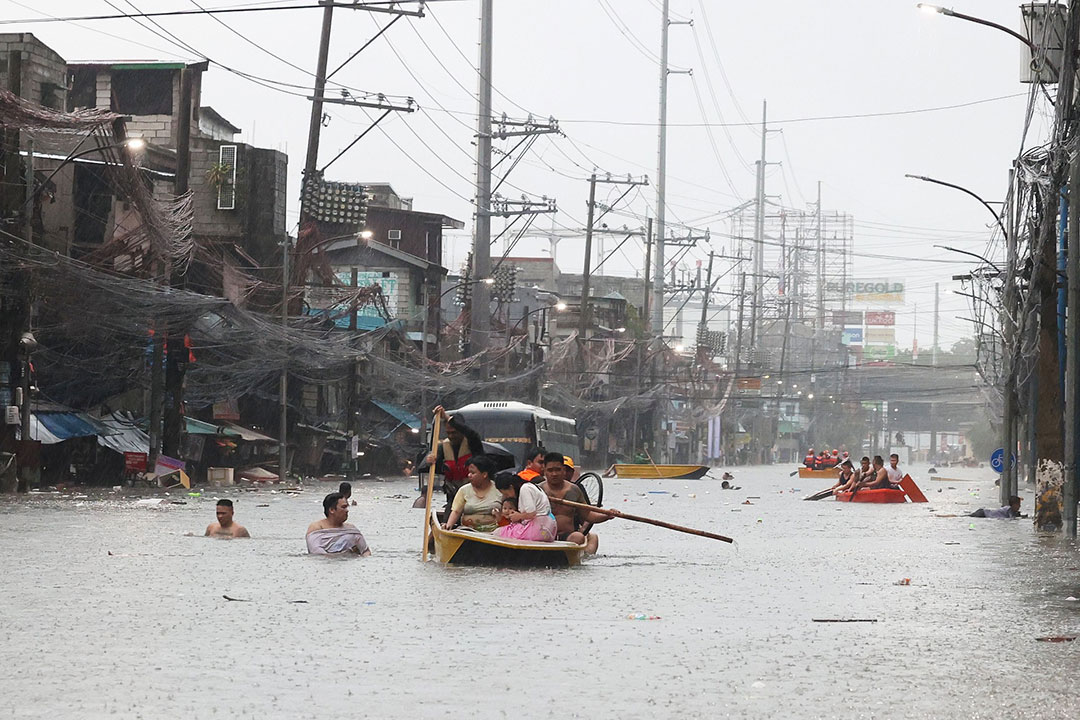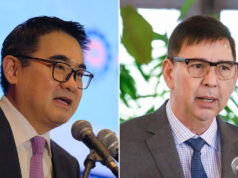Flood scandal clouds Manila’s push for trade and investment, analysts say

By Chloe Mari A. Hufana, Reporter
THE multibillion-peso corruption scandal that has engulfed the Marcos administration puts investor confidence at risk, with analysts warning it could reverse hard-won governance improvements and complicate Manila’s push to attract foreign capital.
Manila’s drive to expand foreign investment and deepen global trade partnerships may face setbacks if the government fails to contain the fallout from the widening corruption scandal, said Josue Raphael J. Cortez, diplomacy lecturer at De La Salle-College of St. Benilde.
He noted investor confidence may weaken as political credibility and policy stability remain top considerations for foreign capital.
“Corruption scandals can certainly affect international standing, particularly in terms of attracting foreign investments,” he said via Facebook Messenger. “Such challenges can debilitate and shift their preference for the country as a potential market.”
The Marcos administration also relies on trade and foreign capital to sustain economic growth, finance infrastructure and social programs and maintain the country’s competitiveness in the region.
The stakes have risen after President Ferdinand R. Marcos, Jr. was implicated in the scandal last Friday by former Party-list lawmaker and one of the central figures in the alleged kickback scheme, Elizaldy S. Co.
The former lawmaker, who previously chaired the House Appropriations Committee, claimed the President received P25 billion through insertions in this year’s national budget, a claim the Palace denied on the same day.
Ederson DT. Tapia, a political science professor at the University of Makati, said such controversies can shift not only investor sentiment but also the strategic calculus of foreign governments watching Manila’s governance trajectory.
“From a diplomatic standpoint, corruption scandals immediately alter how foreign partners assess the Philippines,” he said via Facebook Messenger.
Even if bilateral investment treaties remain intact, he noted, credibility behind those commitments weakens.
Mr. Tapia warned that strategic investments could be delayed or recalibrated, particularly in infrastructure and climate-resilience projects where funding is increasingly tied to governance performance.
If partners feel that procurement systems or oversight mechanisms are compromised, they will either demand stronger safeguards, shift to smaller phased projects or redirect funds elsewhere, he added.
“Scandals damage our domestic institutions and shape how the world calculates trust. And trust, not only treaties, is the true currency of long-term investment and relationships.”
Francis M. Esteban, a faculty member at the Far Eastern University Department of International Studies, noted foreign investors might become skeptical about whether their investments will be used properly or might fall into corruption.
“Investors from the West… May see these corruption scandals as a measurement of our institutions’ incapability to align with their values,” he said in a Facebook messenger chat.
Mr. Esteban stressed that Manila must act both domestically — by probing and punishing liable officials — and diplomatically, by reassuring foreign investors of its credibility to manage funds responsibly.
Gary D. Ador Dionisio, dean of the De La Salle-College of St. Benilde School of Diplomacy and Governance, pointed to the immediate financial repercussions.
He noted that global markets tend to react swiftly to governance risks, often well before domestic political processes catch up.
“International credit ratings such as Moody’s, Standard and Poor, as well as Fitch ratings [have] already downgraded our credit ratings status due to the corruption cases that exploded in the recent months in the Philippines,” he said via Facebook Messenger.
According to Mr. Ador Dionisio, the downgrades have prompted foreign governments and trade partners to scrutinize how the Marcos administration will pursue legal, institutional and moral resolutions through policy and structural reforms.
He noted that these observers are looking for clear signals that Manila intends to rebuild credibility rather than merely manage political fallout.
“This administration must convince its foreign partners that their course actions are acceptable, palatable and justifiable both domestically and internationally,” he added.
Failure to do so, he added, could cast “a huge cloud of doubt” over the government’s legitimacy and stall future trade initiatives, loans and business partnerships with international creditors.



